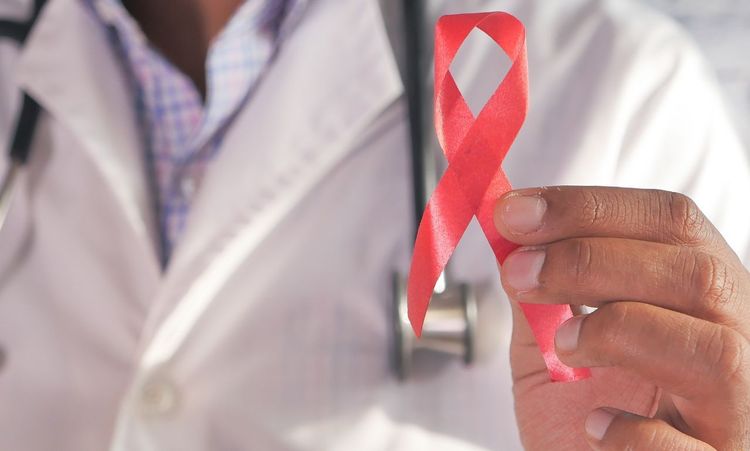Your kidneys quietly filter waste from your blood day and night. Most folks never think about these bean-shaped organs until something goes wrong. Kidney disease often develops without obvious symptoms at first. Yet catching it early makes a huge difference in treatment success. The kidneys remove toxins, balance fluids, and help control blood pressure. When they struggle, your whole body feels the effects. Nearly 37 million Americans live with kidney disease, but many don't know it. I've seen patients shocked to learn their vague symptoms pointed to kidney problems all along. This article covers ten warning signs that might mean your kidneys need attention. Not every symptom means you have kidney disease. But recognizing these signs could lead to earlier diagnosis and better outcomes. Let's explore what your body might be trying to tell you.
Blood in Your Wee (Urine)
Healthy urine typically looks pale yellow to amber. Pink, red, or brown urine often signals blood where it shouldn't be. Blood in urine sometimes appears visibly red but can also be microscopic. You might not notice it without a lab test. This symptom should never be ignored, even if it happens just once. Blood in urine doesn't always cause pain, which makes it easy to dismiss. Your kidneys contain tiny filters that usually keep blood cells in your body. When these filters get damaged, blood cells can leak into your urine. Various kidney problems can cause this leakage, including infections, kidney stones, or disease. Sometimes strenuous exercise can temporarily cause this symptom in healthy people. Certain foods like beets or medications might also change urine color, mimicking blood. Always check with your doctor if you notice unusual urine color or suspect blood.
When to Worry About Blood in Urine
The appearance of blood requires prompt medical attention in most cases. Your doctor will likely order urine tests to confirm the presence of blood. They might also recommend imaging studies to examine your kidneys and urinary tract. Blood in urine accompanied by pain could suggest kidney stones or an infection. If you also have high blood pressure, the combination raises more concerns about kidney function. Men over 50 should know that prostate problems can also cause bloody urine. Women might experience blood in urine during urinary tract infections. The bottom line remains the same regardless of your situation. This symptom deserves professional evaluation without delay.
Puffy Eyes, Ankles and Feet
Morning puffiness around your eyes might not be just from lack of sleep. Swollen ankles at day's end could signal more than standing too long. Kidneys regulate the fluid balance in your body with incredible precision. When they falter, extra fluid builds up in tissues, causing swelling called edema. This puffiness often appears in areas where skin is thinner or looser. Your face, especially around the eyes, shows these changes most noticeably in the morning. Gravity pulls excess fluid downward throughout the day, making ankles and feet swell. Some people notice their rings suddenly feel tight or their shoes don't fit. This swelling usually improves slightly with elevation but returns when you're upright. The swelling generally doesn't cause pain but may feel uncomfortable or tight. Healthy kidneys would normally filter out this extra fluid during urination.
Understanding Fluid Retention
Kidney-related swelling differs from other causes in several ways. It usually affects both sides of the body equally and worsens throughout the day. The swelling leaves a dimple or pit when pressed firmly with a finger. This symptom often appears alongside others like shortness of breath or decreased urination. Heart problems can cause similar swelling, making diagnosis tricky sometimes. Your doctor can determine whether your kidneys or heart need attention. Dietary changes like reducing salt intake often help manage this symptom. Some patients find temporary relief by elevating their legs or wearing compression stockings. However, these measures don't address the underlying kidney problem causing the fluid retention.
Foamy Wee
Have you noticed bubbles in the toilet that don't flush away easily? Occasional bubbles happen normally when urine hits toilet water. But persistent, thick foam resembling beaten egg whites signals a problem. This foam indicates protein in your urine, specifically albumin. Healthy kidneys keep protein molecules in your bloodstream where they belong. Damaged kidney filters allow these proteins to escape into your urine. The more protein present, the foamier your urine appears after voiding. Think about how soap creates bubbles – proteins work similarly in urine. Your urine might also look unusually dark or concentrated when this happens. Some people describe it looking like beer foam that stays for minutes. This symptom often develops gradually, making it easy to miss or dismiss.
Protein Leakage and Your Kidneys
Proteinuria—the medical term for protein in urine—warrants prompt attention. Even mild protein leakage can indicate early kidney damage. Diabetics should pay special attention to this symptom during regular checkups. Conditions like high blood pressure can also damage kidney filters, causing protein leakage. Your doctor can detect protein with a simple urine test in the office. Home test strips are available, though less accurate than laboratory testing. Addressing the underlying cause helps reduce protein loss and protect kidney function. Treatment might include blood pressure medications or better diabetes management. Left untreated, ongoing protein loss eventually leads to more serious kidney problems. Regular testing helps track improvement or worsening of this important sign.
Tiredness and Brain Fog
Feeling exhausted despite adequate sleep might have kidney connections. Many patients describe a profound fatigue unlike ordinary tiredness. Your kidneys produce a hormone called erythropoietin that signals bone marrow to make red blood cells. These cells carry oxygen throughout your body, providing energy. Damaged kidneys make less erythropoietin, leading to fewer red blood cells and anemia. This reduction in oxygen transport explains the overwhelming fatigue many patients experience. Beyond physical tiredness, kidney problems often cause mental cloudiness or "brain fog." Simple tasks become challenging, and concentration wavers throughout the day. You might forget conversations or struggle to find familiar words. These cognitive symptoms often improve after proper kidney treatment begins.
The Kidney-Brain Connection
The relationship between kidneys and brain function extends beyond oxygen delivery. Your kidneys help remove waste products that can become toxic to brain cells. These toxins accumulate when kidneys don't filter efficiently, affecting mental clarity. Sleep disturbances common in kidney disease further worsen cognitive symptoms. Many patients report improved thinking after dialysis sessions remove these toxins. Brain fog sometimes leads people to seek neurological evaluations first. Doctors might initially suspect other conditions like depression or early dementia. A comprehensive approach includes checking kidney function when investigating unexplained fatigue. Simple blood tests measuring creatinine and BUN levels assess kidney performance. These tests often provide the missing link between seemingly unrelated symptoms.
Poor Appetite
Food suddenly losing its appeal could signal kidney troubles brewing. Many kidney patients report diminished hunger and disinterest in formerly favorite foods. Your damaged kidneys allow waste products to build up in your bloodstream. These substances can alter taste perception and trigger nausea. Some patients describe a metallic taste that makes everything seem unappetizing. Others find that meat becomes particularly unappealing as kidney function declines. This decreased food intake creates a troubling cycle for kidney health. Nutritional deficiencies develop, further complicating kidney disease management. Weight loss often follows, sometimes becoming significant over several months. The combination of poor appetite and unintentional weight loss warrants medical attention.
Nutritional Challenges with Kidney Disease
Managing nutrition becomes increasingly complex as kidney disease progresses. Dietary restrictions sometimes worsen appetite problems for many patients. Your doctor might recommend limiting protein, phosphorus, potassium, or sodium. These restrictions eliminate many familiar comfort foods from your diet. Working with a renal dietitian helps develop meal plans that remain appealing. Small, frequent meals often prove more manageable than three larger ones. Adding gentle seasonings like lemon juice can help overcome taste changes. Nutritional supplements formulated for kidney patients sometimes bridge important gaps. The goal remains maintaining adequate nutrition despite appetite challenges.
Nausea
Persistent queasiness without obvious cause deserves investigation for possible kidney involvement. Morning nausea often gets misattributed to other conditions or even pregnancy. Kidney-related nausea typically worsens after eating protein-rich foods like meat. Your failing kidneys struggle to remove urea, a waste product from protein metabolism. This substance accumulates in your bloodstream, triggering the nausea response. Some patients experience vomiting alongside nausea, especially in advanced cases. Others describe a general feeling of stomach discomfort that never fully resolves. The nausea tends to fluctuate in intensity throughout the day. This symptom often improves temporarily after vomiting but soon returns.
Managing Kidney-Related Nausea
Several approaches help reduce this distressing symptom while addressing underlying kidney problems. Medication changes sometimes make a significant difference in symptom control. Certain common drugs strain kidney function or worsen nausea when kidneys falter. Your doctor might prescribe anti-nausea medications specifically for kidney patients. Dietary modifications usually form a crucial part of the management plan. Eating smaller portions more frequently often reduces nausea episodes. Cold foods sometimes prove more tolerable than hot ones for unclear reasons. Some patients find relief from ginger tea or peppermint, though effects vary individually. The most important step remains addressing the kidney dysfunction causing the symptom.
Needing to Wee More Often
Frequent bathroom trips can indicate your kidneys working overtime or struggling. Some people notice this change mainly at night, disrupting sleep patterns. Others find themselves planning outings around bathroom availability during daytime. Healthy kidneys concentrate urine efficiently, allowing longer intervals between voids. Damaged kidneys lose this ability, producing more dilute urine more frequently. You might notice your urine looks paler than usual despite normal fluid intake. The urge often feels urgent yet produces relatively small amounts each time. This pattern differs from urinary tract infections, which typically cause burning pain. Diabetes also increases urination but usually accompanies excessive thirst too.
Urination Changes Worth Noting
Certain urination changes suggest kidney involvement rather than bladder problems. The volume and frequency patterns provide important diagnostic clues for your doctor. Nocturia—waking multiple times to urinate—particularly suggests kidney dysfunction. Men often assume prostate enlargement explains their frequent urination. While prostate issues commonly cause similar symptoms, kidney problems need ruling out. Women might attribute changes to bladder infections or weakness. A urinalysis can help distinguish among these various possibilities. Your doctor may also order ultrasounds of your kidneys and bladder. Addressing the underlying cause remains essential for symptom improvement.
Dry, Itchy Skin
Persistent itchiness without rash might stem from kidney-related mineral imbalances. Many kidney patients describe intense scratching that brings little relief. Your skin may appear unusually dry, flaky, or rough despite using moisturizers. These changes result from multiple kidney-related processes affecting your skin. Healthy kidneys maintain proper mineral balance and remove waste products efficiently. Failing kidneys allow phosphorus buildup, which draws calcium from bones. This mineral imbalance often manifests as itchy skin across your body. Waste product accumulation further irritates nerve endings in your skin. The itching typically worsens at night, disrupting sleep for many patients.
Skin and Kidney Health Connection
Several approaches help manage this uncomfortable symptom while treating underlying kidney issues. Special moisturizers containing urea or lactic acid penetrate dry skin effectively. Your doctor might recommend limiting phosphorus in your diet temporarily. Medications called phosphate binders sometimes help control mineral imbalances. Some patients find relief from antihistamines, though effectiveness varies considerably. Cool showers generally prove more soothing than hot ones for itchy skin. Humidifiers help maintain skin moisture, especially during winter months. The good news: this symptom often improves significantly with proper kidney treatment.
Conclusion
Your kidneys deserve attention when they send warning signals through these symptoms. None of these signs automatically means kidney disease, but they shouldn't be ignored. Early detection dramatically improves outcomes for most kidney conditions. Simple blood and urine tests can quickly assess your kidney function. Many kidney problems respond well to treatment when caught early. Lifestyle changes, medication adjustments, or specific treatments often slow disease progression. Some conditions causing kidney symptoms can be completely reversed with proper care. Regular checkups become especially important if you have diabetes, high blood pressure, or family history. Listen to your body's subtle signals and seek medical advice when something seems off. Your kidneys work tirelessly for you—return the favor by protecting them.




